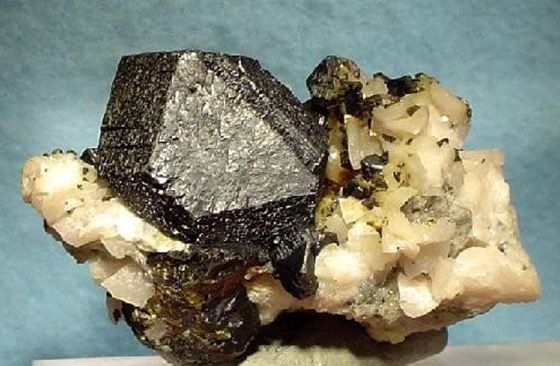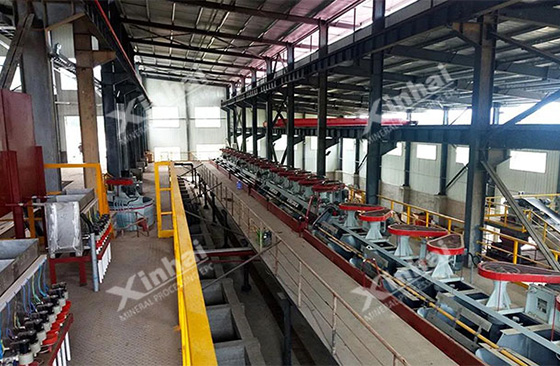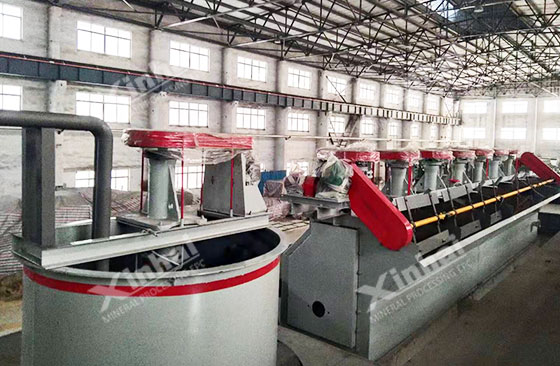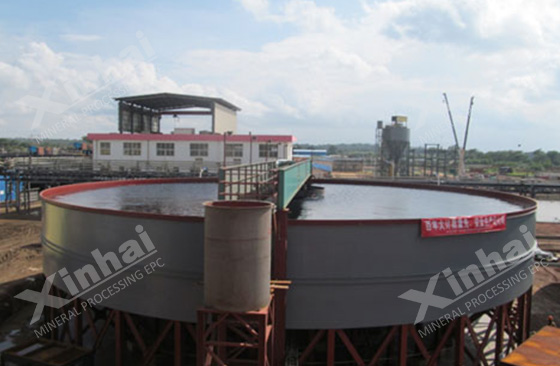
Refractory lead-zinc sulfide ores refer to the types of ores containing lead and zinc minerals in the form of sulfides that are challenging to process or extract due to their complex mineralogy or other characteristics. These ores often have low flotation recoveries or require specialized processing techniques to effectively recover valuable metals. The following will introduce the factors affecting the flotation of refractory lead-zinc sulfide ore and its mineral flotation process.

The factors affecting the flotation performance of refractory lead-zinc sulfide ores (Pb-Zn sulfide ores) are often multifaceted, rarely stemming from a single cause. Instead, it is typically the combined effect of "ore properties, slime/water quality, reagent regime, and process operations" that leads to issues such as poor selectivity, low recovery rates, and unstable concentrate grades. Below, we categorize common on-site problems and provide actionable solutions.
1. Mineralogical complexity: Ore may contain many different sulfide minerals such as galena (sulfide of lead), sphalerite (sulfide of zinc), pyrite (sulfide of iron), chalcopyrite (copper sulfide), etc. The variety of sulfide minerals and their different surface properties can complicate the separation and flotation process.
2. Fine particle size: Refractory lead-zinc sulphide ores often have a high number of fine particles, which can interfere with an effective flotation process, requiring additional comminution or specialized flotation techniques.
3. Presence of complex gangue minerals: Gangue minerals are non-valuable minerals in ores. Refractory ores may contain complex gangue minerals such as quartz, calcite, dolomite or clay minerals which may interfere with the flotation process and reduce collector selectivity.
4. Chemical composition: Certain impurities or elements present in the ore, such as heavy metals or metalloid elements, may affect the flotation process and require specific treatment methods.
To process refractory lead-zinc sulfide ores, advanced flotation techniques, reagent optimization, fine crushing, and sometimes additional steps such as oxidation roasting or hydrometallurgical methods are required to increase the recovery of lead-zinc minerals. Every deposit is unique, so a deep understanding of the ore's properties and detailed mineralogical studies are critical to developing an effective treatment strategy.

In industrial operations, copper flotation performance is influenced by multiple interacting variables, making optimization more complex than laboratory conditions. Based on operational experience from multiple flotation plants, the following step-by-step troubleshooting and optimization framework is recommended to systematically improve flotation stability and recovery.
Step 1: Process Diagnosis and Ore Characterization
Conduct a comprehensive diagnosis of the ore and process conditions, including:
Mineral composition and association characteristics
Degree of mineral dissemination and liberation
Oxidation level of copper minerals
Slime content and clay minerals
Pyrite and other sulfide mineral content
This step establishes the fundamental metallurgical basis for subsequent optimization decisions.
Step 2: Identification of Key Sources of Process Variability
Continuously monitor and analyze critical operating parameters, such as:
Feed grade fluctuations
Particle size distribution
Water quality and hardness
Circulating load and sand return volume
Pulp pH and chemical environment
Establish correlations between production performance indicators (recovery, concentrate grade) and operating parameters to identify the root causes of process instability.
Step 3: Stabilization of Grinding and Classification Circuits
Ensure the grinding and classification system operates under stable conditions, with controlled and consistent particle size distribution.
Reagent optimization should only be conducted after grinding stability is achieved, as unstable particle size directly compromises the reliability of reagent test results.
Step 4: Stage-Wise Reagent Optimization
Avoid indiscriminate, full-scale reagent changes. Instead, apply targeted, stage-by-stage optimization, focusing on the dominant metallurgical constraints, such as:
Sulfur or zinc suppression inefficiency
Slime coating and fine particle entrainment
High water hardness affecting reagent performance
Each reagent adjustment should correspond to a clearly identified problem.
Step 5: Management of Middlings and Circulating Load
Many refractory flotation issues originate from excessive middlings circulation, leading to:
Mineral contamination
Reagent accumulation
Deterioration of flotation selectivity
Optimize middlings treatment strategies and control circulating load to break negative feedback loops within the flotation circuit.
Step 6: Progressive Experimental Validation
Follow a structured experimental sequence:
laboratory-scale testing → pilot-scale testing → plant-scale adjustment
Modify only one variable at a time, while maintaining control conditions, to ensure that optimization results are traceable, verifiable, and reproducible.
Refractory lead-zinc sulfide ores are difficult to flotation using conventional flotation methods because ores often contain complex sulfide minerals such as galena (PbS), sphalerite (ZnS), pyrite (FeS2) and others. To efficiently float refractory Pb-Zn sulfide ores, various techniques and strategies can be employed. The following is a general overview of the flotation process for refractory lead-zinc sulfide ores:
1. Crushing and grinding process: Firstly, the ore is crushed and ground to a suitable particle size. The grinding process helps expose valuable minerals and increases their surface area for subsequent flotation.
2. Slurry adjustment: Then the ore pulp after grinding is mixed with chemicals in the flotation tank for flotation. The pulping stage includes adding collectors, foaming agents and modifiers to the slurry. Collectors selectively bind sulfide minerals, frothers form a stable foam, and modifiers adjust pH and other chemical conditions.

3. Rougher flotation: In the rougher flotation stage, the conditioned pulp is aerated and air bubbles are introduced. Hydrophobic sulfide minerals attach to the air bubbles, forming a buoyant layer on the surface of the flotation cell. Blisters containing valuable minerals are collected as concentrates, while gangue minerals are precipitated and discarded as tailings.
4. Sweep flotation: Sweep stages are sometimes used to further recover additional valuable minerals from rougher tailings. This stage helps to increase the overall recovery of lead and zinc minerals.
5. Selective flotation: The concentrate from the roughing or sweeping stage is further subjected to selective flotation. The purpose of beneficiation flotation is to remove remaining impurities and improve the grade of the final concentrate.

6. Concentration and filtration: Concentrate and filter the final concentrate to remove excess water and obtain a higher-grade final product.
It should be noted that the flotation process of refractory lead-zinc sulfide ores may be more complicated, and may require different reagent combinations and process parameters according to the specific characteristics of the ore. Therefore, Xinhai Mining recommends beneficiation test analysis and consultation with experts or process engineers to optimize flotation conditions for specific ore types.
To find out more about our products and solutions, please fill out the form below and one of our experts will get back to you shortly.